- Home
- Blake Banner
Gardened of the Damned Page 2
Gardened of the Damned Read online
Page 2
James and Kathleen O’Conor had a house in Corona, just by the Flushing Meadows Park. It was a nice, detached place on 46th Avenue, which would probably have fit comfortably into David Foster’s kitchen. As I pulled up in front of their gate, I paused a moment to think about relative values. I get deep like that sometimes. Dehan said, “You think the pool and the tennis courts are in back?”
I climbed out and looked at her across the roof of the car. The first green leaves of spring were coming out on the plane tree behind her. “Is that the whiff of sour grapes I detect in your voice, Dehan?”
She shook her head. “No, I’m just wondering, what didn’t these guys do, that David Foster did do…?”
“If your point is that life isn’t fair, you’re a little late. We already knew that.”
She sighed. “I know.”
I pushed through the gate and rang on the bell.
The door opened and I looked down at a small woman of maybe five feet. She had a squint and short hair, jeans, a pink cardigan, and a mischievous smile.
“Can I help you?”
I showed her my badge. “Detectives Stone and Dehan, NYPD. Are you Kathleen O’Conor?”
“I am, what have I done now?” she said, and grinned.
I smiled back. “Nothing we know of, Mrs. O’Conor. We would just like a quick word with you and your husband, Jim. Is he in?”
“He’s watching the TV, for a change. Come in.” She walked ahead of us into the front room, speaking as she went. “Jim! Would you turn the feckin’ TV off for five minutes? We have visitors.”
We followed her in. There was a an immensely tall man, with a shock of snow white hair swept back from his face, folded into an armchair opposite the TV. He fumbled with the remote control, switched off the television, and levered himself to his feet. Once he had managed all that, he smiled. He must have been six foot six if he was an inch.
I told him who we were and they both told us to sit down. I watched Jim lever himself back into his chair and Kathleen sat on the sofa, next to Dehan, with her feet barely touching the floor.
I sighed. “We need to talk to you about your son, Sean.” I pulled the photograph Dehan had printed from my pocket and showed it to them. “Is this Sean O’Conor, your son?”
All the humor drained from their faces. Kathleen put her hand to her mouth and tears glistened in her eyes. Jim seemed to turn gray.
“Yeah. That’s our son. Did you find him?”
“I’m afraid I have very bad news. Sean was found murdered.”
Kathleen gave a scream. Her eyes went wide and she stared at me. Jim seemed to crumble. He sank back in his chair and put one massive hand over his eyes. Kathleen kept saying, “No! Oh, no! God no, please.”
Jim spoke without opening his eyes. “When did this happen? Where has he been all this time? What has he got himself mixed up in…?”
I took a deep breath, but it was Dehan who answered. “It happened twelve years ago, Mr. O’Conor, but we were only able to identify the body this morning.”
Kathleen’s hands dropped into her lap. “What?”
Jim opened his eyes. “Twelve feckin’ years?”
“Why were we not notified? Why was he not…”
“Twelve feckin’ years!” Jim said it again, looking around the room as though he might find an explanation on the walls somewhere.
“I know it is hard to understand.” Even as I said it, it sounded lame. “We were pretty surprised ourselves. But all his papers had been removed, and he had been dressed in the clothes of a vagrant. There was no possible clue to his identity.”
Kathleen’s face twisted and she started to sob. “Oh, God bless him, poor Sean!” Dehan put her arm around her.
Jim shook his head. His voice was a rasp. “Who would do a thing like that to my son?”
“That’s what we mean to find out.”
Dehan said, “We know this is really hard, but if you can help us, if you can answer a few questions for us…”
“We can come back later if…”
But they were both shaking their heads. Kathleen spoke into her handkerchief, twisting her nose. “I knew it. I knew he was dead. I said so, didn’t I, Jim?”
“Ah, sure, we both knew, Kath. It’s just, when you come face to face with it like that…”
“When you have it confirmed. And murdered… sweet mother of God, murdered…” She started sobbing again.
“Shall I make a cup of tea?” It was Dehan, stroking her back.
Kathleen gripped her hand and looked up into her face. “Would you, love?”
Dehan went out to the kitchen. I heard the cupboard doors bang and the tap hiss.
I said, “Did he ever talk much about his work with you?”
“All the feckin’ time!” It was Kathleen, talking into her handkerchief again. She blew her nose. “It’s all he ever feckin’ talked about. His work, and the f… and the church.”
Jim said, “He was very devoted to his work, and to the church, detective.”
“Do you recall what he was working on just before he disappeared?”
Jim nodded. “Oh yes. How could I not? We both do, don’t we, Kath?”
“Some feckin’ squatters. Lazy feckin’ no-good layabouts, want every feckin’ thing handed them on a feckin’ plate…”
She dissolved into tears. Jim watched her a moment, then turned to me. “They had taken over a building on Tiffany Street, in the Bronx. Big, five-story apartment block, so it was. Semi-derelict, no water, no electric, but there must have been some handy lads there ’cause didn’t they get it all working? Illegal, like, but still...”
“And charge it to the feckin’ honest taxpayer!”
“Not at all, Kath! Taxpayers had nothing to do with it.”
“So you say!”
I coughed. “So, what did your son have to do with these squatters?”
“Didn’t the landlord want to sell the site, so they could tear it down and make offices there? See, it was worth a hell of a lot more as offices than as apartments. So, one of the parishioners at St. Mary’s, some down and out, one of them squatters, tells Sean they’re being evicted, and doesn’t he only go and start a case against the company that’s selling the site. He claims agents for the company had taken rent from the residents, and therefore owed them compensation for evicting them.”
“Can you remember the name of the company?”
He gave a dry laugh. “Well, that was another thing. It turns out, according to Sean, the company selling the property and the company buying the property, are both owned by the same parent company, and they both have city officials sitting on the board of directors. It stank to high hell. And he was goin’ after them, goin’ for the jugular, so he was.”
“Can you remember the name?”
“Remember it? I’ll never feckin’ forget it. Hagan Construction. That was the parent company, belonged to Conor Hagan and you being a policeman, you’ll be familiar with the name. Any Irishman who has lived in the Bronx is familiar with that name. Head of the Hagan clan, a big shot in the Irish Mob, a very dangerous man to cross.” His bottom lip curled and he began to sob. “I never wished so bad that I’d had a coward for a son. May God forgive me, wasn’t it his courage and his faith that cost him his life?”
Dehan came in with a tray, four cups, and a pot of tea. She set it down on the coffee table and started to pour. While she did, I sat back and stared out their bow window at the tree across the road.
Dehan handed me a cup and sat down next to Kathleen. I said, “So Sean was taking a case on behalf of the residents of this building on Tiffany Street, against Conor Hagan.”
“Residents?” It was Kathleen. “Squatters and parasites, more like!”
A flash of irritation crossed Jim’s face. “He was a good Christian, Kath. He lived by his faith…”
“And feckin’ died for it!”
Dehan cut in before it escalated. “I believe he was active at a church in the Bronx.”
Jim sipped. “St. Mary
’s. He was born in the Bronx, and we moved out here when he was a young lad, to get away from the crime. But we stayed in contact with the priest, a good man so he was, always ready to help, if he could.”
“Father O’Neil. So Sean must have had friends at the church.”
“Oh, he did that.”
Kathleen smiled briefly. “And a lovely girl. God alone knows what she thought when he just vanished, Mexican, but a lovely sweet child, as devout as he was. Isn’t that how they met? In the soup kitchen, and delivering clothes during the bitter winter. They were both besotted, bless them.”
Dehan asked, “What was her name, Kathleen?”
“God forgive me, I can’t remember. Isn’t it a shame? I only met her the one time when he brought her over for dinner. But it’s that long ago, I cannot remember her name. Can you remember, Jim?”
He shook his head. “No. It was one of them Mexican, Spanish names. Maria, was it? Or Carmen…? I don’t recall.”
I asked, “Any idea how we could find her or contact her?”
Kathleen looked at me as though I were a bit slow. “Sure, won’t he have her address and telephone number upstairs?”
I smiled. “Upstairs?”
“Of course! I have all his stuff upstairs. His computer, all his papers, his diary… everything, I mean, until today…” Her face started to fold up into wet grief again. “…We had no idea if he was coming back. He might have turned up at any time, walked through the door…!”
I watched her a moment, trying to conceive what kind of hell she must be going through. I couldn’t even begin. I turned to Jim. I saw the same hell behind his eyes, but I knew from his face he was going to keep it together until we were gone, until Kathleen couldn’t see him.
I said, “We need to take his things away and examine them. Have you any objection? It will all be returned to you after the investigation.”
“We have no objection. Take what you need. Just catch the bastard who did this to our son.”
I pulled out my phone and called the 43rd. “I need a CSI team to collect evidence from the following address…” I told her where it was. Then added, “It is just papers and IT stuff. No, no body.”
When I hung up, Kathleen said, “Of course, it all depends how much was taken in the burglary.”
Dehan sat back and sighed. I tried not to look at her. “Burglary?”
“Didn’t it all happen at the same feckin’ time. They say it never rains but it pours. The very night after he never came home, didn’t we have a feckin’ break in? They went into his room, God alone knows what they expected to find up there…”
Jim shrugged. “The policeman said it was probably opportunistic, you know, broke in on the off chance.”
I stared at them both for a moment, trying to fathom the depths of human stupidity.
“It didn’t occur to you, or the cop, that his disappearance and the break in might be connected?”
They looked blank. Kathleen said, “No. Why would it?”
I smiled. “Sure, why would it? Did anything go missing from Sean’s room?”
“I couldn’t tell you,” said Jim. “He kept all his stuff very private. Nobody was allowed to touch it, but I wouldn’t have thought so. Sure, they left the computer, didn’t they? A real fancy one at that, and who’d be interested in a lot of papers? So you’re probably all right.”
I nodded and looked at Dehan. “No doubt.” I made to stand. “We won’t take up any more of your time. A van will be here shortly to bag up and take the stuff from Sean’s room. Please don’t go in there or disturb anything. We’ll keep you posted as to any developments.”
We left them holding each other at the door and climbed into the Jag. Dehan frowned at me. “You don’t want to look through his stuff before we leave?”
I shook my head. “I’m more interested in what isn’t on the computer. We’ll go over everything at our leisure back at the station, but I think we’ll find anything of interest has already been taken.” I fired up the engine. “Where to now, Dehan?”
She smiled. “Sure, isn’t it time you spoke to Father O’Neil?”
I nodded. “It sure is.”
FOUR
We took the I-678, crossed back over the Bronx Whitestone Bridge, and arrived at Lafayette Avenue, in Hunts Point, about twenty minutes later. The sun was slipping in the east and evening was insinuating itself into the air. I parked, climbed out of the car, and stood staring at the massive, stone temple. I was tired and in need of a beer, but I wanted to talk to Father O’Neil before Dehan and I chewed the cud over a drink.
The church was big, set back from the road in its own grounds and surrounded by trees that made it hard to distinguish the details of the building. The walls were gray stone and the roofs were sharp, red-tiled gables. They looked stark and unhappy against the fragile, early spring sky. The whole thing occupied half a block and was surrounded by a black, iron railing, maybe seven feet high.
Dehan pointed at the corner. “The entrance is on Faile Street.”
“Let’s take a look around before we go in.”
I walked east, toward the corner with Bryant. The church railing ended where it joined with the wall of a six-story brownstone apartment block. I stopped outside the door and pointed at the curb. “That’s where the dumpster was.” I looked back at the church grounds. “What is that, thirty feet from the railing?” I looked at the apartment block. It had a fire escape on either side of the building, with a CCTV camera over the arched doorway. “I’m figuring they didn’t bring it down the fire escape. This is a busy street, patrol cars are frequent in this area…” I jerked my head at the entrance. “CCTV, unlikely they brought it out the door.”
Dehan nodded and walked to the corner of Bryant. I followed her and we strolled down to the end of the block. There was an alleyway that led down the side of the brownstone to the church yard. There was a gate with a padlock at the near end, and another where it connected with the church.
“What are you thinking?” She had her skeptical face on.
I smiled. “I’m not. I just want to know what the place looks like.”
We walked back up Lafayette and made our way through the large, iron gates that guarded the entrance to the House of the Almighty. There was a gravel path that led, among lawns, to the Gothic arch of the main door. To the left, attached to the main nave, was a house built in a similar style, also made of gray stone, though the gabled roof was of dark slate tiles. The door was a cheerful, fire engine red, with a shiny brass knocker in the middle.
“What do you think?” I asked. “Is he at home having tea, or is he doing God’s work?”
She didn’t answer. Instead she followed me around the side of the church, through the grounds. There were a lot of trees, mainly plane trees, though there were some poplars and cypresses too.
“This was my mom’s church,” she said. “When I was a kid, we used to come here on Sunday.”
A footpath ran along the side of the building. At the end, where the main body of the church ended, there was a sharp angle to the left. It had the depth of the nave, maybe forty or fifty feet, and formed another angle with an old red brick building that looked as though it might have been a coach house or a stable. A number of fruit trees had been planted in the lee of the walls.
The footpath continued past this recess until the grass was replaced with concrete, and two steps led down to the iron gate that we had seen at the end of the alleyway. I surveyed all this and asked, “Did your dad come with you?”
“No, he used to go to the synagogue.”
We started back toward the front of the church. “How come you went with your mom and not your dad?”
“I went to both. Sometimes it was one-week mom, one-week dad. Sometimes it was months. They were never sure how to handle it and they were never sure how best to please God.”
“I never got it,” I said.
“Never got what?”
“Three religions, all devoted to the same god, all t
rying real hard to please him, and instead of being grateful, he gives all three of them a real hard time.”
She gave a small laugh. “He gave the oil to the Muslims, the banks to the Jews, and the empires to the Christians, but the tortured souls He distributed evenly amongst all three.”
We had reached the main entrance. The massive doors stood open onto an impenetrable darkness. I stood looking at the dark arch. “Do I gather you are an atheist?”
She shrugged. “Do I need a label? I read all the holy books and came to the conclusion they were all written by men. Mostly men who had been too long in the desert, suffering from dehydration.” She looked at me with a bland smile. “Hydrate a man and put him in a lab, he will tend to talk more sense.”
“Or a woman.”
“There’s that.”
“I feel a disturbance in the Force. I think he is in the church, doing God’s work.”
We stepped through the portal into the cool, echoing darkness. Our footfalls seemed to slide up the walls and scamper around the vaulted ceilings. Two rows of arches supported on marble columns separated the aisles from the central nave. A red carpet led to the vast, golden altar, where archangels and saints stood watching, with apparent indifference, as Jesus, raised up on a vast wooden cross, continued his two-thousand-year ordeal of suffering and self-sacrifice.
There was a figure kneeling before the altar, dressed in black. He heard the echo of our feet approaching and when we came to a halt behind him, he crossed himself and stood. As he turned, I said, “Father Padraig O’Neil?”
“That’s my name.” He smiled. We showed him our badges and told him whom we were. He remained impassive and asked, “How can I help you, Detectives?”
“Do you recall a young attorney who used to volunteer here about twelve years ago, name of Sean O’Conor?”
His face lit up. “Sean? Do I remember Sean? Well, of course I do! A rare and wonderful young man, but if you’re looking for him, I’m afraid I have no idea where he is.”
When Dehan spoke, she had a harshness to her voice that made me look. “We’re not looking for him, Father O’Neil. We’d like to talk to you about him. Is there somewhere we can speak, in private?”

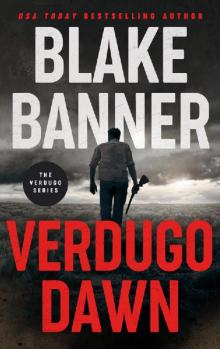 Verdugo Dawn
Verdugo Dawn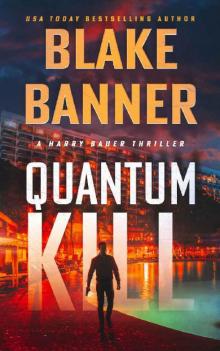 Quantum Kill (Cobra Book 4)
Quantum Kill (Cobra Book 4)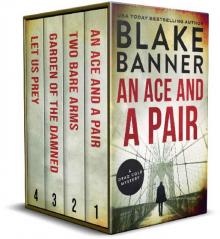 Dead Cold Mysteries Box Set #1: Books 1-4 (A Dead Cold Box Set)
Dead Cold Mysteries Box Set #1: Books 1-4 (A Dead Cold Box Set)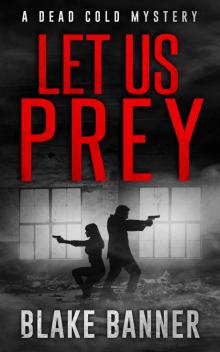 Let Us Prey
Let Us Prey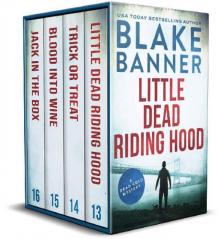 Dead Cold Mysteries Box Set #4: Books 13-16 (A Dead Cold Box Set)
Dead Cold Mysteries Box Set #4: Books 13-16 (A Dead Cold Box Set)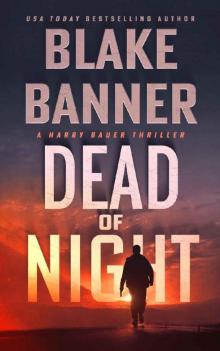 Dead of Night
Dead of Night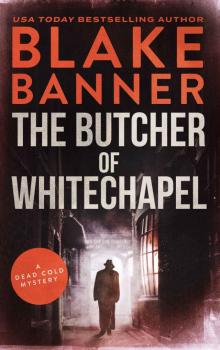 The Butcher of Whitechapel: Dead Cold Mystery 12
The Butcher of Whitechapel: Dead Cold Mystery 12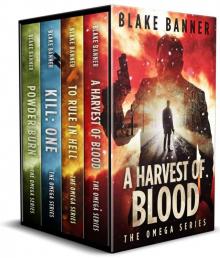 Omega Series Box Set 2
Omega Series Box Set 2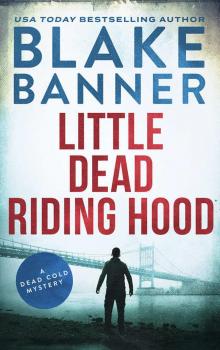 Little Dead Riding Hood: Dead Cold Mystery 13
Little Dead Riding Hood: Dead Cold Mystery 13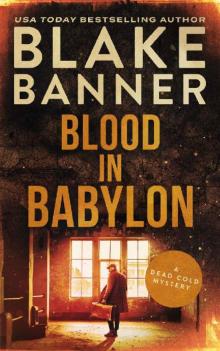 Blood in Babylon
Blood in Babylon Powder Burn
Powder Burn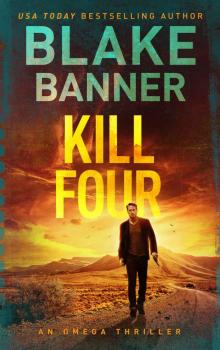 Kill Four
Kill Four Omega Series Box Set 3
Omega Series Box Set 3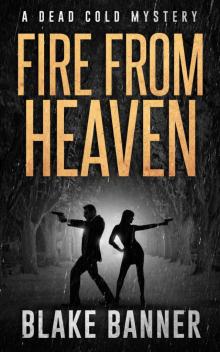 Fire From Heaven: Dead Cold Mystery 9
Fire From Heaven: Dead Cold Mystery 9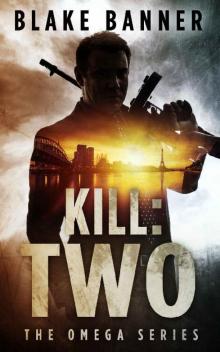 Kill - Two
Kill - Two Omega Series Box Set 1
Omega Series Box Set 1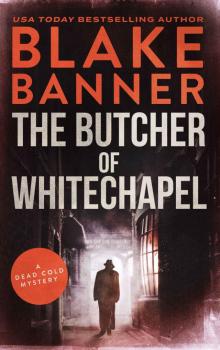 The Butcher of Whitechapel
The Butcher of Whitechapel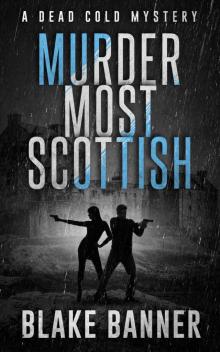 Murder Most Scottish
Murder Most Scottish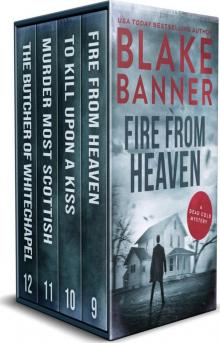 Dead Cold Mystery Box Set 3
Dead Cold Mystery Box Set 3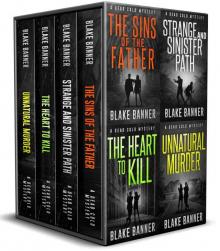 Dead Cold Mysteries Books 5-8
Dead Cold Mysteries Books 5-8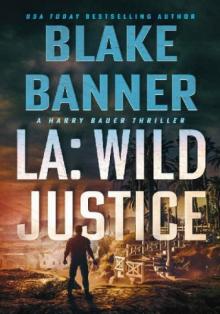 LA
LA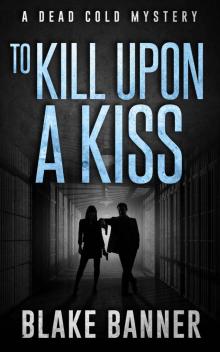 To Kill Upon A Kiss: Dead Cold Mystery 10
To Kill Upon A Kiss: Dead Cold Mystery 10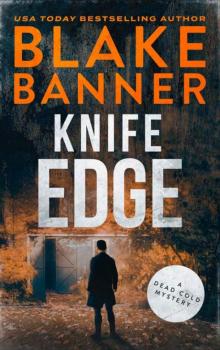 Knife Edge (A Dead Cold Mystery Book 27)
Knife Edge (A Dead Cold Mystery Book 27)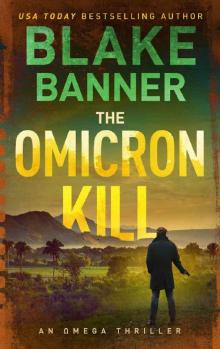 The Omicron Kill - An Omega Thriller (Omega Series Book 11)
The Omicron Kill - An Omega Thriller (Omega Series Book 11)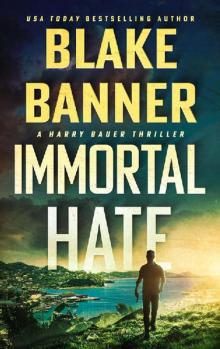 Immortal Hate (Harry Bauer Book 5)
Immortal Hate (Harry Bauer Book 5)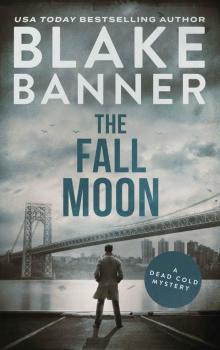 The Fall Moon
The Fall Moon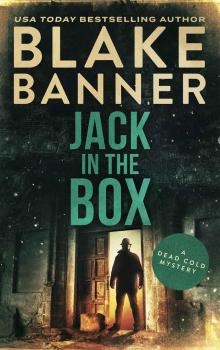 Jack in the Box
Jack in the Box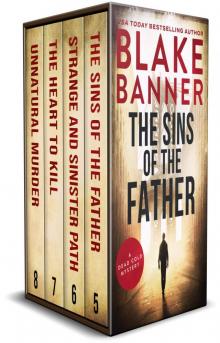 Dead Cold Mystery Box Set 2
Dead Cold Mystery Box Set 2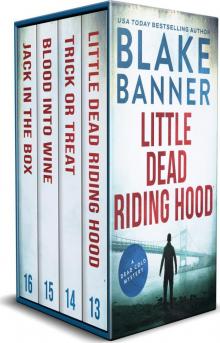 Dead Cold Mystery Box Set 4
Dead Cold Mystery Box Set 4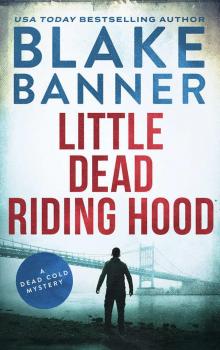 Little Dead Riding Hood
Little Dead Riding Hood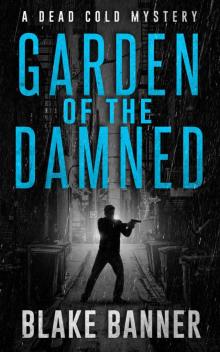 Gardened of the Damned
Gardened of the Damned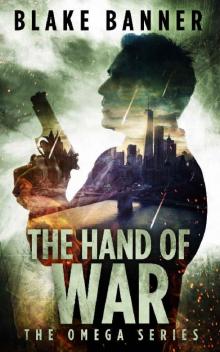 The Hand of War
The Hand of War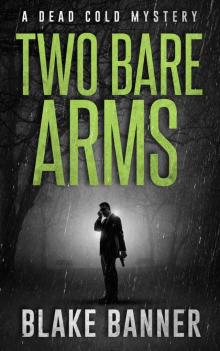 Two Bare Arms
Two Bare Arms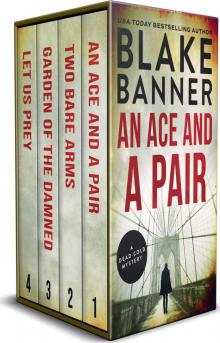 Dead Cold Mystery Box Set 1
Dead Cold Mystery Box Set 1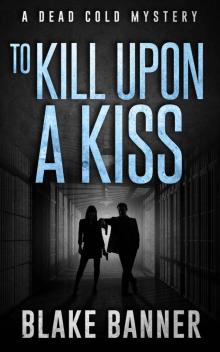 To Kill Upon A Kiss
To Kill Upon A Kiss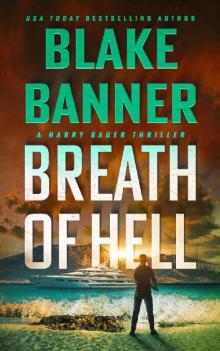 Breath of Hell (Harry Bauer Book 8)
Breath of Hell (Harry Bauer Book 8)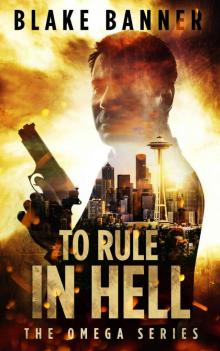 To Rule in Hell
To Rule in Hell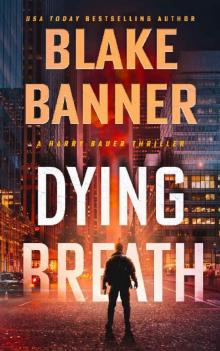 Dying Breath (Cobra Book 2)
Dying Breath (Cobra Book 2)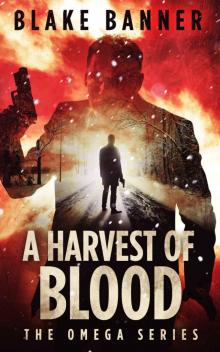 A Harvest of Blood - An Action Thriller Novel (Omega Series Book 5)
A Harvest of Blood - An Action Thriller Novel (Omega Series Book 5)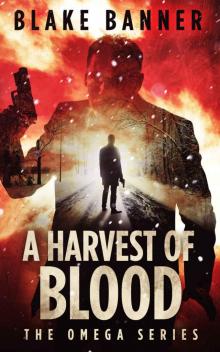 A Harvest of Blood - An Action Thriller Novel
A Harvest of Blood - An Action Thriller Novel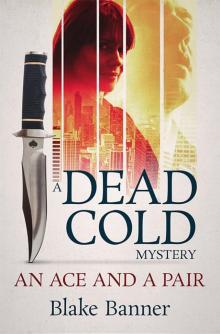 Ace and A Pair: A Dead Cold Mystery (Dead Cold Mysteries Book 1)
Ace and A Pair: A Dead Cold Mystery (Dead Cold Mysteries Book 1) Omega Series Box Set 3: Books 8-10
Omega Series Box Set 3: Books 8-10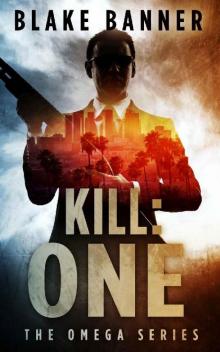 Kill One_An Action Thriller Novel
Kill One_An Action Thriller Novel The Storm
The Storm Double Edged Blade
Double Edged Blade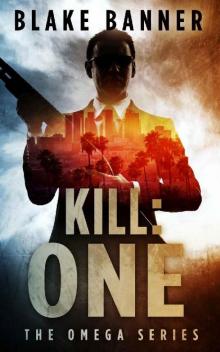 Kill: One - An Action Thriller Novel (Omega Series Book 7)
Kill: One - An Action Thriller Novel (Omega Series Book 7)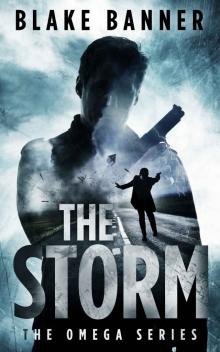 The Storm - An Action Thriller Novel (Omega Series Book 3)
The Storm - An Action Thriller Novel (Omega Series Book 3) Double Edged Blade - An Action Thriller Novel (Omega Series Book 2)
Double Edged Blade - An Action Thriller Novel (Omega Series Book 2) Dawn of the Hunter
Dawn of the Hunter Dawn of the Hunter - An Action Thriller Novel (Omega Series Book 1)
Dawn of the Hunter - An Action Thriller Novel (Omega Series Book 1)